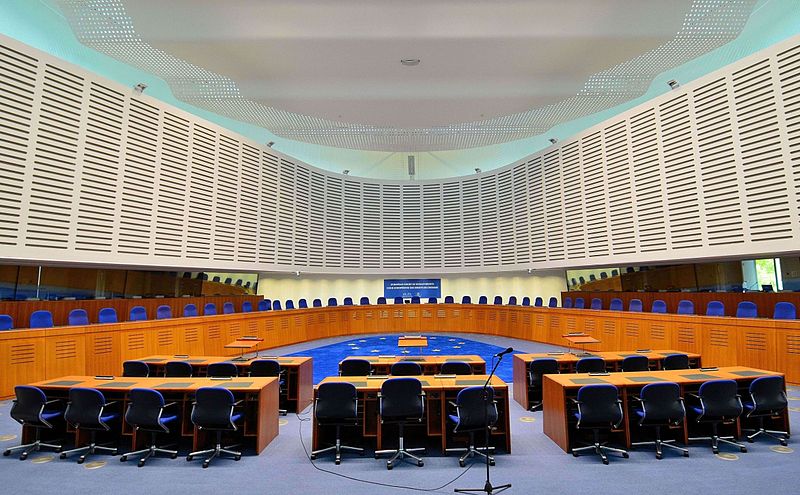
The Rwanda plan aims to deter people from crossing the Channel in small boats By Nick Eardley BBC Chief Political Correspondent Prominent members of the Conservative Party, including a
cabinet minister, have indicated that their party might pursue a campaign to withdraw from the European Convention on Human Rights (ECHR) during the next election, should the blockage of Rwanda flights persist.
Frustration has arisen due to the involvement of a European court in preventing flights for asylum seekers from taking off last year.
The cabinet minister informed the BBC that the UK is "likely" facing repercussions for Brexit.
Despite this, the government has confirmed that the UK will uphold its membership in the ECHR.
A spokesperson stated, "The government is committed to honoring its international treaty obligations. As previously outlined, we believe that our Stop the Boats Bill will bring about the necessary changes to reduce incentives for individuals to risk their lives through illegal crossings, all while maintaining our commitment to the ECHR."
However, the statements from influential figures within the government are anticipated to revive discussions within the Conservative Party regarding the ECHR—a topic that garners differing opinions among Tory MPs.
The ECHR was established in 1950 by a consortium of nations, including the UK. This treaty delineates the rights and freedoms accorded to individuals across the 47 signatory countries and falls under the jurisdiction of the European Court of Human Rights. Notably, it operates independently from the European Union, ensuring that the UK remains a member of both entities post-Brexit.
European Court at Odds with UK Values - Braverman Why Does the UK Seek to Send Asylum Seekers to Rwanda? Government ministers are eager to demonstrate their capacity to address illegal migration into the UK before the forthcoming election, which is likely to take place next year.
However, the Rwanda initiative, intended to relocate certain asylum seekers to the East African nation, has encountered significant delays and setbacks.
The inaugural flights were halted by a European judge in a last-minute intervention last year, despite receiving clearance from UK courts. Subsequently, the scheme has become mired in legal proceedings.
Last month, the UK's Court of Appeal surprisingly ruled against the plan, leaving the Home Office taken aback.
An appeal is now scheduled to be heard in the Supreme Court in the autumn. Nevertheless, senior ministers privately harbor doubts about their capacity to overturn the ruling. They fear that even if the government emerges victorious, individual legal challenges will result in a prolonged delay before deportations can commence.
Although alternative strategies are being contemplated, they are also expected to face legal challenges and require substantial time for implementation.
This scenario is poised to stimulate renewed discourse about whether the UK must adopt more assertive measures to ensure the execution of the policy.
Recent legislation compels the government to expel individuals who have entered the country illegally. However, the absence of comprehensive return agreements, coupled with the ongoing legal entanglements surrounding the Rwanda initiative, renders the timeline for implementing this responsibility uncertain.
The government is now equipped with the authority to disregard certain ECHR interim injunctions related to border security.
Nevertheless, several Conservative MPs advocate for a more comprehensive departure from ECHR obligations.
A cabinet minister suggested that unfolding events could render it "inevitable" for the Conservatives to advocate for ECHR withdrawal.
Labour's Shadow Home Secretary, Yvette Cooper, accused the Conservatives of pursuing headlines instead of tackling the crisis effectively. She noted, "The issue lies in the fact that this rhetoric is hindering the negotiation of the necessary agreements with France and other European nations to genuinely address the problem and prevent these perilous crossings from occurring in the first place."
Certain backbenchers argue that regardless of the Rwanda scheme's outcome, the Conservatives should campaign for withdrawal during the upcoming election.
Jonathan Gullis stated, "Repeatedly, we witness the quasi-legislative European Court of Human Rights undermining the government's efforts to halt the influx of boats."
He suggested that voters should have the opportunity to decide on ECHR withdrawal during the next election.
However, a former cabinet minister, staunchly opposed to withdrawal, dismissed the idea as "knee-jerk nonsense."
They asserted that those favoring withdrawal constituted a "minority" and that substantial opposition would emerge within the cabinet. Photo by Adrian Grycuk, Wikimedia commons.


































